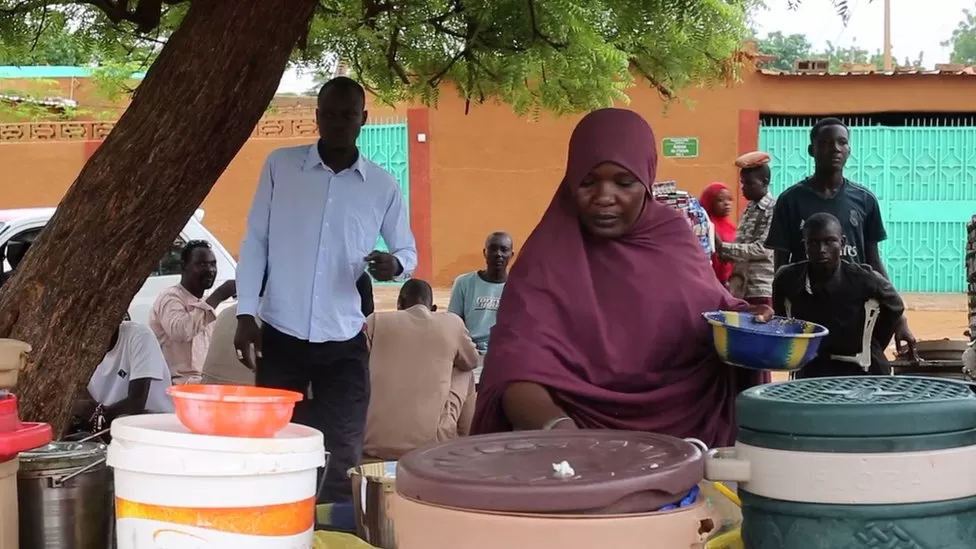Zara Kada serves up dishes of rice, fish and vegetables in plastic coliseums to her guests sitting on rustic benches in the capital of Niger’s capital, Niamey. This business is a lifeline for the widowed mama – of- seven but it’s under trouble as food prices have shot up after profitable warrants were assessed after the military seized power.
” Not only has the price of rice increased but also that of cooking oil painting. It’s an increase of 2,500 F CFA($ 4£ 3) in just one week,” she says standing by her small food cube.” This causes us problems because if I prepare the rice and I can not vend it, there will be no gains, only losses.”
Two weeks agone
, Niger’s army deposed the country’s democratically tagged President, Mohamed Bazoum, attracting wide transnational commination.
The Economic Community of West African States( Ecowas) is determined to stop yet another military preemption in the region- the sixth in just three times.
” We’re drawing the line in the beach,” Ecowas security chief Abdel Fatau Musah tells the BBC.
” There’s a contagion and if we don’t doggedly stop what has happed there, also which country is coming?” he asks.
So Ecowas has replied snappily, by cutting off fiscal deals, electricity inventories and, in a move particularly painful for landlocked Niger, closed its land borders, blocking pivotal significances.
Now, after a alternate exigency peak on the extremity in Niger, indigenous heads of state have ordered the activation of a standby military force, ready to foray the country should the military continue their hold on power.


Leave a Reply